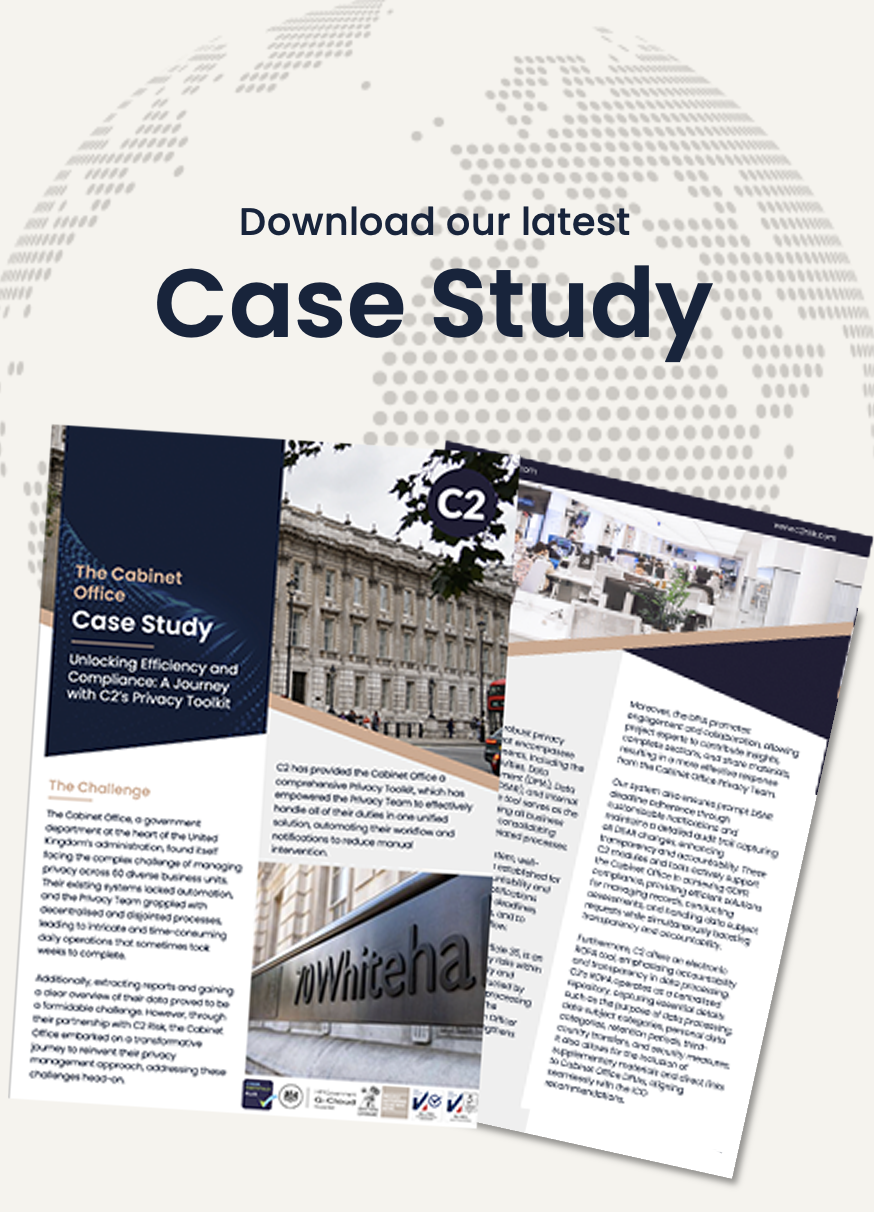3 Critical Outcomes of a Supplier Breach

3 Critical Outcomes of a Supplier Breach
Organisations rely heavily on third-party vendors and suppliers to help meet operational needs. However, this dependence also introduces potential risks, especially in terms of cybersecurity.
Theft of data can have serious consequences not only for the business but also for individuals responsible for the business. In most recent cases CEOs such as Ex-CEO Ville Tapio of Psychotherapy Centre Vastaamo have received suspended prison sentences and lost their jobs for failing to take measures to protect sensitive data. Emphasising the importance of board-level executives understanding their ecosystem. Making it imperative for them to shoulder the responsibility of implementing automation measures, such as a vendor risk management system to effectively safeguard against and mitigate potential risks.
Below, we explore the top three critical outcomes that organisations may face as a result of a supplier breach and how this can impact the business and the C-Suite.
Compromised vendor relationships
When a supplier experiences a cybersecurity breach, it can lead to a breakdown in trust and compromise the organisation’s vendor relationship. A breach in the supplier’s system raises questions about the effectiveness of third-party practices, including vendor risk assessments, due diligence and ongoing monitoring.
The consequences of a compromised vendor relationship can be huge. It can result in disruptions in the supply chain, delays in product or service delivery and potential financial losses, with the average cost of a data breach in 2022 estimated to be around $4.35 million.
Additionally, customers may question the organisation’s ability to protect their data and privacy, leading to reputational damage. Therefore, it is important that the C-Suite prioritises robust third-party management practices. According to an IBM report, organisations using AI and automation had a 74-day shorter breach lifecycle and saved an average of $3 million more than those without.
Data breach and security risks
Supplier breaches pose a direct threat to the security of an organisation’s data and sensitive information. When a supplier’s systems have been compromised, it increases the likelihood of unauthorised access, data breaches, and potential exposure of confidential information. This can lead to severe regulatory implications, financial penalties, and legal consequences.
The breach of the MOVEit file transfer software serves as a prime example of the vulnerabilities that can arise from a compromised third-party vendor. The BBC, British Airways and Boots are among many companies that have been affected by hackers who have accessed sensitive data through the MOVEit software, commonly used by corporate clients, including payroll provider, Zellis. According to the latest figures, the MOVEit hackers have already claimed 383 victim organisations, impacting more than 20 million individuals.
The impact of a data breach extends further beyond immediate financial losses. It breaks customer trust, damages the organisation’s reputation and hinders future business opportunities.
To mitigate risks, organisations must implement stringent security measures, conduct regular security audits of suppliers, and enforce contractual obligations that prioritise data protection and privacy. This is where having a supplier breach checklist comes in handy.
Operational disruptions and financial losses
Operational disruptions not only impact the organisation’s bottom line but also impacts customer confidence and satisfaction. Organisations must establish contingency plans and alternative supplier options to minimise the impact of supplier breaches. Investing in robust business continuity strategies and supply chain resilience is crucial to mitigating operational disruptions and minimising financial losses.
As you can see, supplier breaches can have significant consequences for the business and the C-Suite. Compromised vendor relationships, data breaches, and operational disruptions are among the critical outcomes. To mitigate these risks, the C-Suite must prioritise robust third-party management practices, enforce stringent security measures, and establish business continuity plans. By doing so, organisations can protect their data, maintain strong vendor relationships and minimise the impact of supplier breaches on their operations and reputation. At C2, we offer a Vendor Risk Management solution where you can visualise and monitor all your risks in one place so you can reduce and mitigate your supplier chain vulnerabilities in a matter of minutes. Find out more or book a demo call today.
About C2
C2 is a UK risk management scaleup on a mission to help businesses survive and thrive in the digital economy. C2 helps organisations manage security and compliance in a way that’s unique to their business and that does more than simply ticking off digital checkboxes. C2’s industry-leading platform supports the public and private sectors in managing their threat landscape and improving vendor controls, project, privacy, and ESG risks.



